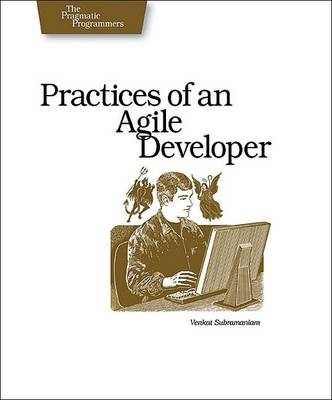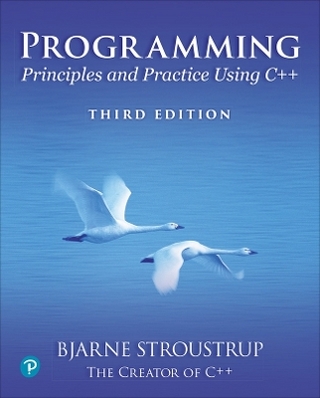
Practices of an Agile Developer - Working in the Real World
The Pragmatic Programmers (Verlag)
978-0-9745140-8-6 (ISBN)
The practices that make a software project successful are usually missing in those projects that fail. These are the practices, habits, ideas and approaches that make that critical difference between success and failure. By following these better practices you can show yourself, your teammates and your managers real results, and begin to effect a broader change for your whole project. This book covers practices in five areas: Development Process While Coding Developer Attitude Project and Team Management Iterative and Incremental Learning These practices provide guidelines that will help you succeed in delivering and meeting the user's expectations, even if the domain is unfamiliar. You'll be able to keep normal project pressure from turning into disastrous stress while writing code, and see how to effectively coordinate mentors, team leads, and developers in harmony. The one wealth that grows as we give is knowledge. But this is also the one wealth that may be hardest to obtain. It takes effort, especially in a field as dynamic as software development. This book shows you why keeping up with change is important, and provides options to make it work for you.
Venkat Subramaniam, founder of Agile Developer, Inc., has trained and mentored thousands of software developers in the US and Europe. He has significant experience in architecture, design, and development of software applications. Venkat helps his clients effectively apply and succeed with agile practices on their software projects, and speaks frequently at conferences. He is also a non-tenure track faculty at the University of Houston and teaches the professional software developer series at Rice University school of continuing studies. He holds a Ph.D. in computer science and is the recipient of the 2004 computer science department teaching excellence award at UH.
1 Agile Software Development 2 Beginning Agility 1. Work for Outcome 2. Quick Fixes Become Quicksand 3. Criticize Ideas, Not People 4. Damn the Torpedoes, Go Ahead 3 Feeding Agility 5. Keep Up with Change 6. Invest in Your Team 7. Know When to Unlearn 8. Question Until You Understand 9. Feel the Rhythm 4 Delivering What Users Want 10. Let Customers Make Decisions 11. Let Design Guide, Not Dictate 12. Justify Technology Use 13. Keep It Releasable 14. Integrate Early, Integrate Often 15. Automate Deployment Early 16. Get Frequent Feedback Using Demos 17. Use Short Iterations, Release in Increments 18. Fixed Prices Are Broken Promises 5 Agile Feedback 19. Put Angels on Your Shoulders 20. Use It Before YouBuildIt 21. Different Makes a Difference 22. Automate Acceptance Testing 23. Measure Real Progress 24. Listen to Users 6 Agile Coding 25. Program Intently and Expressively 26. Communicate in Code 27. Actively Evaluate Trade-Offs 28. Code in Increments 29. Keep It Simple 30. Write Cohesive Code 31. Tell, Don't Ask 32. Substitute by Contract 7 Agile Debugging 33. Keep a Solutions Log 34. Warnings Are Really Errors 35. Attack Problems in Isolation 36. Report All Exceptions 37. Provide Useful Error Messages 8 Agile Collaboration 38. Schedule Regular Face Time 39. Architects Must Write Code 40. Practice Collective Ownership 41. Be a Mentor 42. Allow People to Figure It Out 43. Share Code Only When Ready 44. Review Code 45. Keep Others Informed 9 Epilogue: Moving to Agility 9.1 Just One New Practice 9.2 Rescuing a Failing Project 9.3 Introducing Agility: The Manager's Guide 9.4 Introducing Agility: The Programmer's Guide 9.5 The End? A Resources A.1 On the Web A.2 Bibliography
| Erscheint lt. Verlag | 9.5.2006 |
|---|---|
| Reihe/Serie | Pragmatic Programmers |
| Verlagsort | Raleigh |
| Sprache | englisch |
| Themenwelt | Informatik ► Software Entwicklung ► Objektorientierung |
| ISBN-10 | 0-9745140-8-X / 097451408X |
| ISBN-13 | 978-0-9745140-8-6 / 9780974514086 |
| Zustand | Neuware |
| Informationen gemäß Produktsicherheitsverordnung (GPSR) | |
| Haben Sie eine Frage zum Produkt? |
aus dem Bereich


